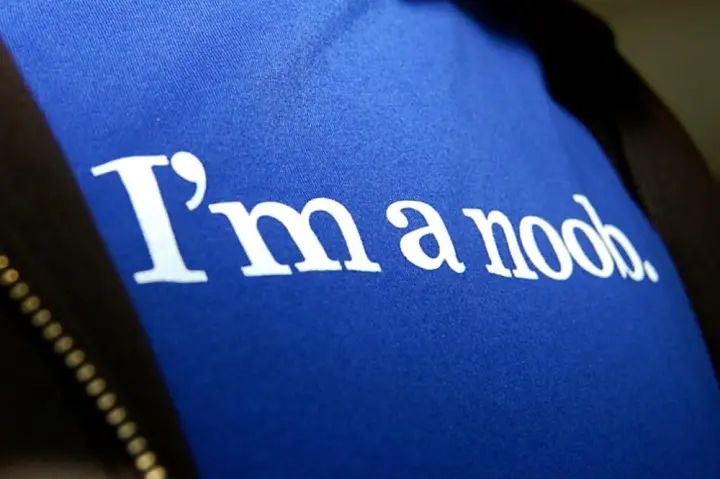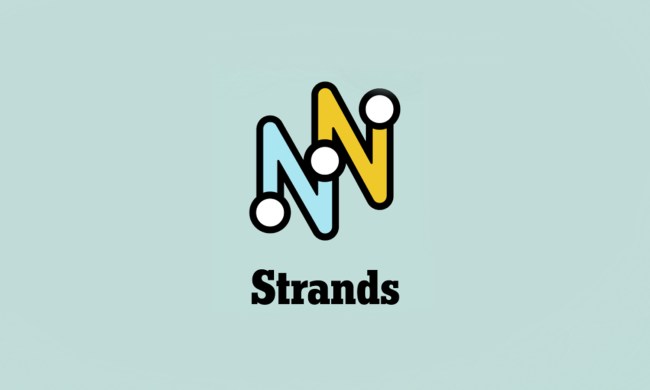
If you’ve ever wondered about the etymology of the term, how it has evolved over the years, and what the difference may be between the different spellings then you’re in the right place. Sit back, put your feet up, prepare to be enlightened, and transcend from your newb state.
The original newbie
The roots of the term newbie are obscure, but the meaning is pretty obvious even if you’ve never heard the word before. For clarity, here’s what the Oxford English Dictionary defines it as: “An inexperienced newcomer to a particular activity.”
According to the OED it’s thought to have derived from the word “newie” which first popped up around the 1830s and was used in the U.S. and Australia as a word for “something or someone new.” There’s also a possibility it came from the British public school system (a potentially confusing term because the British public school system actually describes private, fee-paying schools) and derived from slang for “new boy.”
noob or n00b soon became a popular insult in games like Counter Strike
According to the book A Dictionary of Soldier Talk the term was used amongst U.S. troops during the Vietnam War to describe any new guy in the unit.
Newbs go online
The term newbie popped up online in the 1980s and can be found in old Usenet discussions, now archived on Google Groups.
According to KnowYourMeme, the earliest archived mention appears on comp.sys.mac where Barbara Dyker posted “The net is all too often cluttered with requests for BinHex, StuffIt, PackIt … and hasty articles about not being able to unbinhex 4.0 with 5.0, and “‘what’s a .pit file?’ I did my struggling as a newbie — let’s get some info out for those that are new to the Net so that it works for all of us. Or shall we ignore newbies like someone suggested we ignore non-programmers??”
It was obviously a friendly term with the same meaning as defined by Oxford, but that was about to change.
The rise of the n00b
At some point in the 1990’s the alternative spelling noob started to gain popularity along with its variant n00b. The term n00b came out of leet (elite) speak. Leet or l33t speak popped up on bulletin board systems in the 80’s and the term was originally coined by the hacker collective Cult of the Dead Cow. It’s thought that replacing letters with words and characters and deliberately misspelling words was an attempt to disguise communications from the authorities and prevent banned or suspicious words being flagged or censored on bulletin boards.
Leet speak soon spread well beyond its hacker origins. The 2005 study, Game Geek’s Goss: Linguistic Creativity In Young Males Within An Online University Forum, explored some possible roots and also showed how it had morphed into something else:
“Rather than merely defining its participants within an elite cultural boundary, ‘leet speak’ is utilised ironically to unearth ‘wannabees’ (those seeking entrance and acceptance into the game world, generally 12 –16 year olds). Of particular fascination to the authors was that despite the clear self-demarcation of the group from the users of ‘leet speak’, and their insistence on its use solely by ‘newbs and wannabees’, the group continued to use the language to communicate with each other online.”
What’s the difference between a newb and a n00b?
For better or worse the hardcore gamer community adopted it and noob or n00b soon became a popular insult in games like Counter Strike. The 2007 Urban Dictionary entry by Slyke The Phoxenix does a great job of delineating the difference between a newb and a noob. What it basically boils down to is that newbs are new to something, but willing to learn, whereas n00bs are new or really bad at something, but seemingly uninterested in learning, and often act disrespectfully.
By 2009 the term n00b was popular enough that the Global Language Monitor was suggesting it might be the millionth word to enter the English language. Whether you actually determine something like that is still the subject of debate, but n00b missed out anyway as the GLM later decided on “Web 2.0” instead.
Blurring the boundaries
When noob finally entered the Oxford English Dictionary it was defined as “A person who is inexperienced in a particular sphere or activity, especially computing or the use of the Internet.”
It’s still sometimes used as an insult, as gamers can attest, but the meaning is merged with newb for a lot of people now. As Dr Michele Zappavigna points out in her book, Discourse of Twitter and Social Media, noob is most often used on Twitter as self-deprecation.
noobs often blast everyone around them in a frenzied attempt to rack up some kills
“In a similar way to geek, noob, as it is used in microblogging, has lost much of its original vitriolic edge and is employed largely to mean ‘newbie’, that is, someone new to a particular domain and hence lacking in experience and skill.”
Offshoots of noob in gaming
Due to its popularity, you’ll find different spellings of the word noob in gamer circles, including “nuub” and sometimes “nub.” There are also related terms like “noob tube” which refers to rocket and grenade launchers in first-person shooters like the Call of Duty series. The idea being that grenade launchers don’t require much skill to use, and noobs often blast everyone around them in a frenzied attempt to rack up some kills. The term noob is still very much an insult if you’re playing CoD or CS and many gamers feel that noobs ruin games.
When discussing the term noob in relation to games, it’s appropriate to bring up the Mortal Kombat character Noob Saibot. However, the name has nothing to do with the term noob. Instead, it’s derived from the surnames of Ed Boon and John Tobias, the creators of Mortal Kombat.
The future of noob, n00b, and newb
A check of Google Trends reveals in the wider world, the term noob is far more popular than newbie and it’s often used interchangeably. Searches for noob peaked in 2011, but it seems to have replaced newbie to a large extent. The derivative n00b has been steadily declining in popularity, along with the rest of leet speak, since 2005.
Reached this point? Congratulations, you’re no longer a noob when it comes to the word noob.


